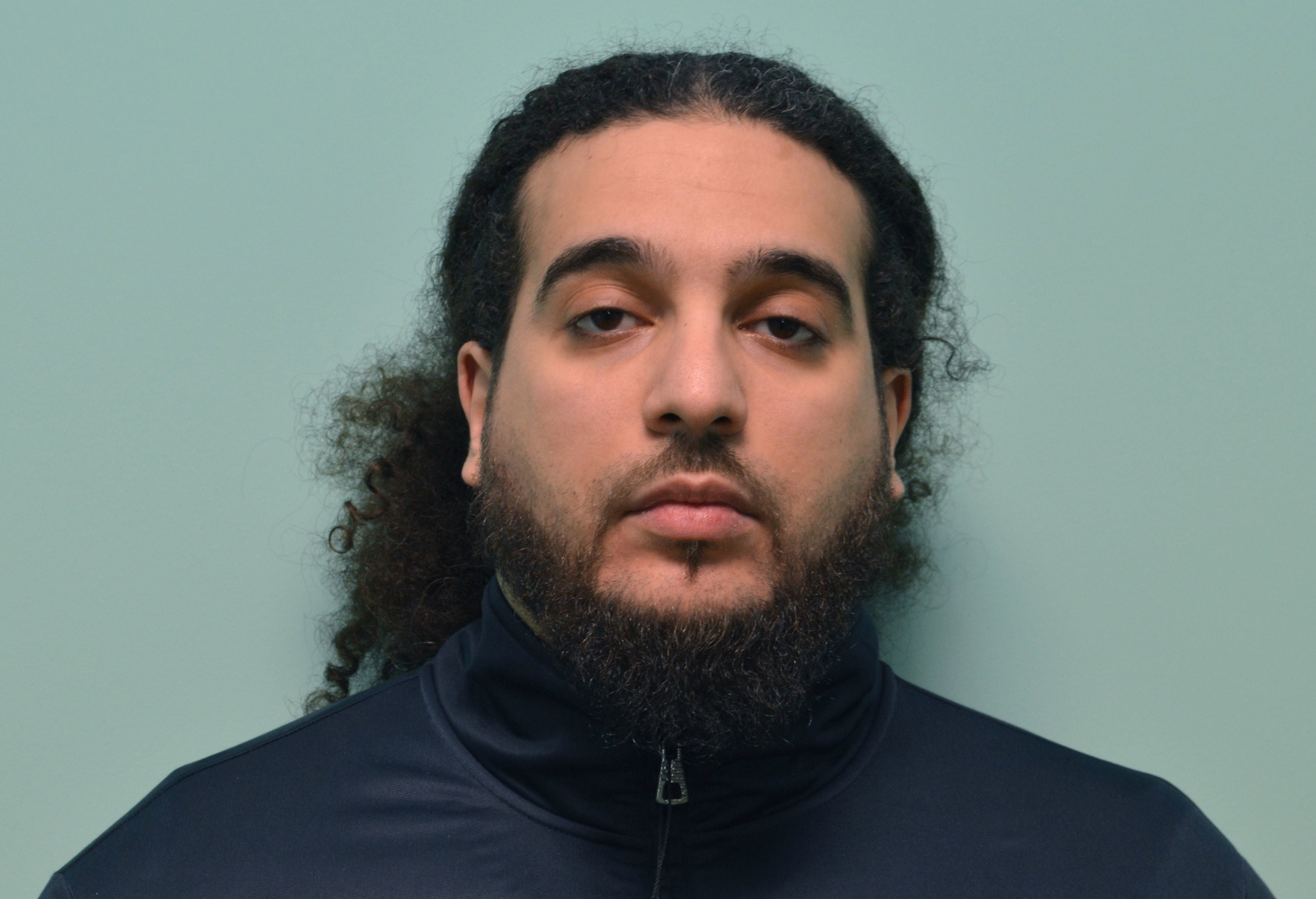Son of hate cleric Abu Hamza jailed over £350,000 money laundering plot
Ti-to Ibn-Sheikh information from HSBC bank insider to create false identities for account holders

The son of notorious hate cleric Abu Hamza has been jailed for more than three years over a plot to set up bank accounts to launder almost £350,000.
Ti-to Ibn-Sheikh, 35, was handed information by an HSBC bank insider, which he used to create false identities for account holders, Southwark Crown Court heard.
The bank accounts were then used to launder the proceeds of thefts and frauds, with victims losing a total of £342,000 between May 2018 and December 2019.
Ibn-Sheikh, of Shepherd’s Bush, west London, was jailed for a total of three years and nine months on Tuesday.
He previously pleaded guilty to two counts of conspiracy to launder money, possessing articles for use in fraud, possession of 14 identity documents with fraudulent intent and possession of more than £12,000 in criminal cash.
Judge Andrew Goymer said: “This defendant in my judgment played a leading role, not necessarily the leading role.
“He is not right at the peak, but he is not far below that because he used considerable skill, ingenuity and industry towards this fraudulent and dishonest scheme.”
Ibn-Sheikh, who was previously called Mustafa Hamza Kamel, is the son of radical Muslim cleric Abu Hamza, 63, who led the Finsbury Park Mosque in the 1990s.
Mr Hamza was previously jailed in the UK for inciting violence and was extradited to New York after an eight-year legal battle. He is currently serving a life sentence in the US for terrorism offences.
Ibn-Sheikh’s barrister Bill Evans said his client had changed his name to distance himself from his father.
“His father has a degree of notoriety, which has caused him substantial difficulty and he and other members of his family have changed their names as a result,” he said.
The court heard that when Ibn-Sheikh was arrested on 17 December 2019, he was caught with 12 iPhones, 10 bank cards in different names and 14 identity documents.
Prosecutor Kelly Brocklehurst said once he had obtained an identity document, he would set about creating a “legend” around it using council and utility bills, National Insurance cards and UK driving licences.
The iPhones were used to ensure the false identities each had differing and unique contact details, he said.
“Using those phones together with supporting documents provided the sort of rounded profile which allowed him to open their bank accounts fraudulently,” he added.
The court heard Ibn-Sheikh was on licence at the time of the offences, having been jailed for 12 years for kidnapping at Inner London Crown Court in 2014.
Bill Evans, defending, said Ibn-Sheikh’s role was to set up accounts through which people could put substantial amounts of money, which were then paid out to foreign jurisdictions.
“Mr Ibn-Sheikh was not the ultimate beneficiary of those sums,” he said.
“If one looks at his record and previous convictions, it is apparent he has now spent the vast majority of the past 12 or 13 years or so in custody.
“The extent to which he is able to manage outside and make use of his talents in a legitimate way will of course be directly impacted by the amount of time he now spends in custody.
“He is clearly a talented man who has chosen to utilise his talents in a way that has resulted in fairly substantial periods of custody.”
Russell Tyner, of the CPS Organised Crime Division, said: “Ibn-Sheikh was perfectly willing to bank and move large amounts of stolen money.
“The number of passports and other ID showed he was more than just a neutral recipient of the cash.
“He was an active and willing participant in the conspiracy and he had the ability and means to create false accounts to launder cash.
“His guilty pleas shows the strength of the case against him.
“These are not victimless crimes and wherever possible the CPS will work with our law enforcement partners to bring money laundering cases before a court and any ill-gotten gains recovered.”
PA
